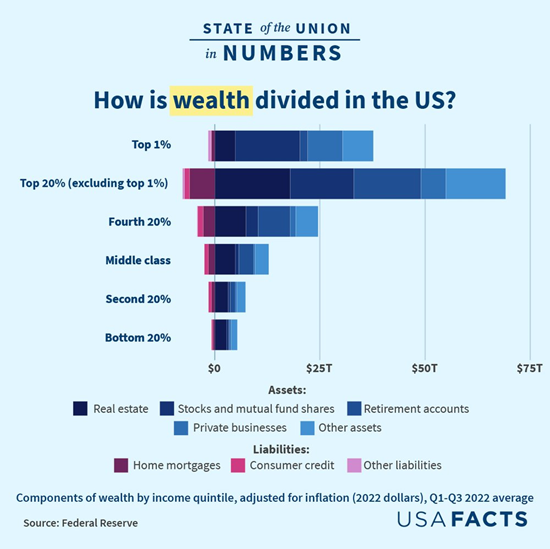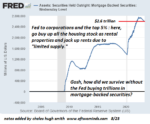What changed in the economy is now nobody can afford to get by on working-class wages because there’s no longer any bargains.
The economy has changed in many ways, and it’s difficult to track the glacial movements over decades.
One change that few seem to recognize or discuss is the disappearance of bargains: cheap rent, cheap meals at hole-in-the-wall restaurants, cheap transport, cheap travel, cheap services–all gone.
Back in the day, even stupidly expensive cities like San Francisco had working-class districts with cheap rent and cheap eats. One reason the hippie movement arose in San Francisco was the availability of cheap places to rent in what many would dismiss as rundown slums or ghettos. There were plenty of working-class hole-in-the-wall restaurants and cafes that served cheap plates of spaghetti, turkey legs and other affordable fare.
The working-class districts in cities have long been gentrified, or more recently, abandoned to homeless encampments. Gentrification eliminates cheap rents, as the soaring valuations of real estate leads the new owners to charge high rents in order to pay their lofty mortgages.
Affordable apartments disappear, and so do affordable small commercial / retail spaces for hole-in-the-wall bookstores (remember when these were commonplace?), cafes, odd little niche retailers, and low-cost services (shoe repair, etc.)
The extermination of low-cost commercial space eliminated many services which are no longer available, a trend that feeds the “waste is growth” Landfill Economy: there’s nobody left to repair anything or move second-hand goods, so everything that once could have been repaired or re-used is tossed in the landfill, replaced by a shoddy, crapified replacement product of the global economy.
| One person’s affordable housing is another person’s slum or ghetto. Urban Renewal destroyed affordable housing and vibrant ethnic neighborhoods, in the name of “improvement” which ended up displacing those who could no longer afford soaring rents.
The end result is many people are spending half or 2/3 of after-tax earnings on rent. Personally, I was only able to work my way through college because there were still nooks and crannies of low-rent dives and rooming houses, and low-cost hole-in-the-wall restaurants and cafes, day-old baked goods outlets, etc. Lowering the cost of credit for corporations, financiers and the wealthy created unprecedented competition for places to invest all this nearly free money, and real estate has long been a favored market for those seeking to increase income and appreciation by gentrifying low-cost properties. |
|
| The net result is nobody can afford to start a business because rents, insurance, fees, utilities and regulatory compliance are all unaffordable, And so downtowns and once vibrant retail streets are half-empty or abandoned. All the little cafes, services, second-hand stores are all gone because these are inherently low-margin businesses that can’t afford rent in the thousands per month.
Something else changed, too: the proprietors who operated these small, affordable businesses are gone. The proprietors could charge affordable rates for their services because their own cost of living was low. Once the cost of living skyrocketed, they could no longer afford to get by on the meager earnings of their affordable enterprise. So they sold their building, or retired and moved out of the city to cheaper regions. Who’s left who wants to work the long hours needed to operate small enterprises, and rely on uncertain / low net income? Very few people are willing to take these risks, and few can afford to take these risks. Financialization–and the resulting competition of those with unlimited access to low-cost credit for real estate to “develop”–eliminated all the bargains. Once rents soared, nobody could afford to offer bargains. The price of everything soared and those with cheap rents were forced out of business by rising rents and gentrification. What changed in the economy is now nobody can afford to get by on working-class wages because there’s no longer any bargains. Life used to be good for those with modest incomes because there were still bargains to be had. Not any more. Life is now a struggle because it’s no longer affordable.
Not everyone is suffering, of course. The corporations selling junk products and services are doing just fine: |
|
| As are those who own 90% of the income-producing assets: |
Full story here Are you the author? Previous post See more for Next post
Tags: Featured,newsletter



























